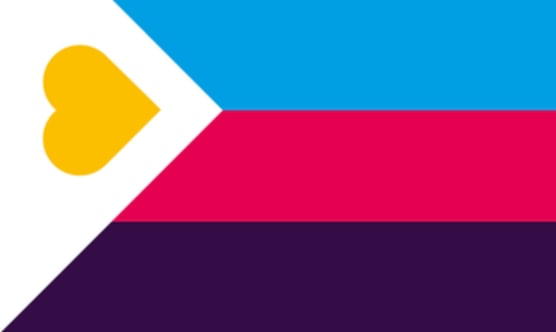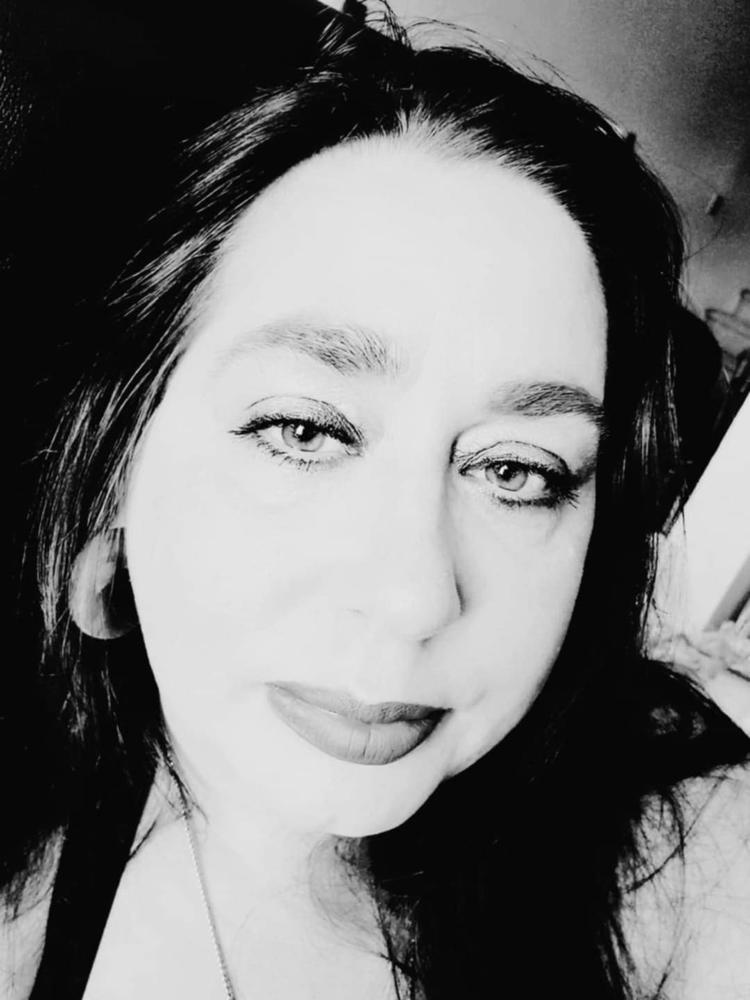Last month, Liz Borden (she/her/they) offered to do a big piece on polyamory. Wayves collected questions and gave them to Liz to think and write about.
So what's your definition of polyamory?
I currently live openly as a relationship anarchist, both in political and practical terms; non/monogamy is as much a political identity as it is a personal one for me. It begins from a position that intentionally orientates away from normative ideologies found within colonial and imperialist notions of family and kinship. I am queer and polyamorous orientated. My intentional family is a queer one and, for the most part, we pass—as white, middle-class, able-bodied, heterosexual, and cis-gendered—which is its own kind of complicated privilege.
In practical terms, relationships are often thought of as agreements that partners decide upon. Some people may agree to be romantically and sexually exclusive to one partner (commonly referred to as monogamy).
Some people may agree on varying levels of intimate, romantic or sexual openness with more than one partner (commonly referred to as non-monogamy). Within these types of relationship configurations, some individuals are involved in stable, long-term, loving relationships involving two or more other people. Others are simultaneously engaged in several relationships of varying degrees of permanence and commitment. Still others are involved in a web of concurrent relationships ranging from short-term relationships that are purely sexual to more enduring relationships characterized by deep emotional attachment.
relationships are often thought of as agreements that partners decide upon
A relationship agreement might involve partners engaging in sexual, but not romantic relationships. Intimacy is not assumed to be a romantic interaction and can include other types of love. This includes filial, familial, and platonic love, with the importance of inclusivity to expand to aromantic, asexual persons, and other marginalized identities within LGBTQ2s+ communities and spaces.
Are there any definitions that you disagree with?
Polyamory is not…
... for everyone. It can be a complex and intense relationship style that takes time and devotion to maintain. Many people might prefer the simplicity, security, and exclusivity of monogamy. One relationship style is not better than any other, that's just colonial thinking, and normative, elitist nonsense.
...cheating. Because (ideally) everyone is aware and consenting of the other partners—the relationships have been negotiated with rules/guidelines to structure scheduling and safer-sex agreements, for example.
The Halifax group, when do they meet?
 Since 2010, Halifax Polyamory regularly hosts and facilitates social gatherings and educational activities. Currently, there are many community-led events hosted by members including monthly coffee meet-and-greets, potlucks, and "munches" [Wikipedia: a casual social gathering for people involved in or interested in kink, BDSM, alternative relationship lifestyles, or fetishes] play-parties, game nights, and karaoke. There are many community members involved in large-scale annual events such as The Atlantic Sex Show and events at other entertainment venues.
Since 2010, Halifax Polyamory regularly hosts and facilitates social gatherings and educational activities. Currently, there are many community-led events hosted by members including monthly coffee meet-and-greets, potlucks, and "munches" [Wikipedia: a casual social gathering for people involved in or interested in kink, BDSM, alternative relationship lifestyles, or fetishes] play-parties, game nights, and karaoke. There are many community members involved in large-scale annual events such as The Atlantic Sex Show and events at other entertainment venues.
Are the meetups like, partner swapping or what?
Many of the events and meet-ups are in public places, and no different than getting together for food and drinks with your friends at school and work. Some are held privately, and by special invite (which may include vetting). The event host will provide detailed information on what you can expect (and not expect) prior to your attendance so that you can make informed decisions before deciding to attend. If you don't know, ASK.
Are meetings good times to learn about what works and what doesn't in a relationship?
It depends, if it is an educational event or support group, those are good opportunities to ask questions to other community members who are also there to share their experiences and insights. If it is a social event, please ask for consent before asking those kinds of questions, as it may be seen as intrusive and inappropriate.
How do you handle jealousy or the feeling of being inadequate as you watch your partner explore polyamory, go on dates, and try new things?
When people are first introduced to the idea of polyamory, one of the first questions they ask is often about jealousy. How do people in polyamorous relationships manage jealousy? Are they ever jealous? In the vast majority of polyamorous relationships, jealousy does come up at some point. However, jealousy can be broken down to determine what your real concerns are. When you recognize what is bothering you, it is possible to manage this challenging feeling. You may even reach a point of compersion (which is NOT the opposite of jealousy), in which you feel joy when your partner is with another partner. You may feel this because you are happy that your metamour (your partner's other partner) is making your partner happy.
When I encounter feelings of jealousy, I tend to sit with those feelings, talk about them with my partner(s) using constructive communication by letting the feelings speak for themselves (feelings are just feelings, after all), and learning from the lessons they bring. It is important for your partner(s) to remain open to hearing about your feelings of jealousy, and to respond to your requests, if they are reasonable for your relationship. In polyamorous relationships, it is important to remember that placing restrictions on your partner generally does not help you to work through jealousy. Unless these restrictions are temporary, while you actively work to figure out what is triggering your jealousy and how to manage it, the restrictions may end up only leading to even more distrust and higher levels of jealousy.
As my partner is exploring is it right for me to ask what they're doing with that new partner, is it okay for me to put up boundaries, or how do I accept boundaries they may set?
It is only appropriate to ask these kinds of questions if your partner has explicitly agreed to share information with you. Your boundaries should only be a reflection of what you need or want in your relationship(s), not what you expect of another person to do (or not do). Those kinds of behaviours can be interpreted as possessive, controlling, toxic, invasive or abusive. Therefore, it is important to ensure that you can trust your partner and to respect your partner’s autonomy, privacy, and boundaries before opening up a relationship or entering into a relationship with a new partner.
Do board game people like polyamory because it makes it easier to get into boardgames, or do polyamorous people get into boardgames so that everyone can play together? Seriously - what do you think the connection is?
Haha, great question. On a lot of threads where new posters ask where to meet people who also happen to identify as polyamorous, folks tend to suggest board game meetups as common place. A lot of personal stories discuss events that revolve around board-game nights, and a lot of people list board games as a frequent hobby. This is not just a coincidence. However "board games" is not a code word or euphemism for sexy times with polyamorous or non/monogamous people. For many individuals, regardless of their relationship status, there is something about actual board games (like Monopoly, Sorry, Cards Against Humanity, Risk and such) that actually draws people together for whatever reason. There is a massive overlap between folks in the polyamory community and self-identified geeks. Board gaming is a geeky pastime that has picked up some mainstream popularity in the last few years (with a lot more complex, fun, well-designed games hitting the market), so it's more common to see coffee shops and bars host board games nights. It's also got a relatively low buy-in and most everyone can play a board game with very little preparation or know-how, making it good for group gatherings.
When negotiating a new polyamourous relationship, how often should you be checking in with your partner(s)? What does a check in look like to you?
 I tend to view negotiating new and existing relationships, boundaries, schedules, and safer-sex agreements as an on-going conversation and part of my everyday experiences with my partner(s). When normalized in this way, conversations around feelings, trust-building, interests, personal growth and self-reflection for example, become easier to talk about openly in a mutually supportive environment.
I tend to view negotiating new and existing relationships, boundaries, schedules, and safer-sex agreements as an on-going conversation and part of my everyday experiences with my partner(s). When normalized in this way, conversations around feelings, trust-building, interests, personal growth and self-reflection for example, become easier to talk about openly in a mutually supportive environment.
How do you manage your schedule, making sure that everyone in your life has access to your time?
I manage my own schedule for various time commitments, such as work, appointments and meetings, as well as coffee dates, over-nights, and so on. I also share a Google calendar with several of my partners who schedule their own time however they see fit (colour-coded for each person). I find a shared calendar helps us plan better for intentional time together and sets expectations around availability at a quick glance.
How do I get connected?
Via Facebook: Halifax Polyamory, and our sister site Polyam Dating NS on Fetlife.
Liz Borden (she/her/they) currently resides in Kjipuktuk (Halifax). They identify as a relationship anarchist and have been practicing various configurations of ethical non/monogamies and polyamory for the past 25 years. They are a feminist killjoy, published author, ethical slut, PhD prospect, mentor, and grand/mother. They completed their MA (Women, Gender, and Sexuality Studies) from Saint Mary's University and have taught classes on Gender and Sexuality at Saint Mary's University as well as on the grassroots, community level.

 By Liz Borden • 2025-02-07 • Halifax
By Liz Borden • 2025-02-07 • Halifax